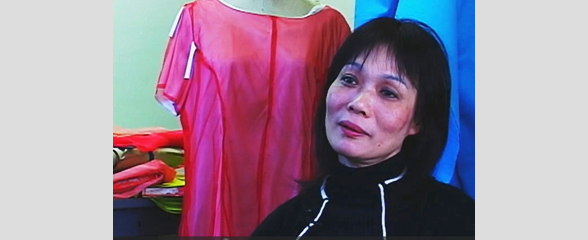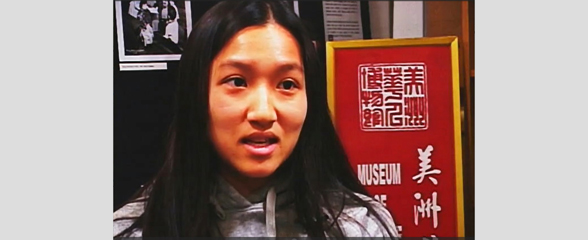Government aid

2014.036.009 Oral History Interview with Angela Ng, January 20, 2004
Angela Ng immigrated to the United States in 1970 from Hong Kong and worked as a unionized garment worker for over 25 years. In the interview, she describes her work and experience as a garment worker, and talks about the changes happening in the garment industry. She also discusses union benefits, work conditions, family life for workers, pay, and job availability. On September 11th, 2001, Angela was working at the garment factory when she noticed a plane fly too low overhead and heard an explosion nearby. She recalls scrambling to reach out to family members and taking hours to get home due to the transportation shutdown. After the attacks, Angela describes the decline in work in the garment factory, loss of certain worker benefits, reduction of hours, and the change in workplace dynamics, specifically the decrease in worker leverage over factory owners as a result of a lack of garment orders.

2014.036.010 Oral History Interview with Karen Hsin, January 27, 2004
Karen Hsin, born in 1982, was a college student living in Chinatown with her mother, a unionized garment worker at the time of the September 11th attacks. In the interview, Karen begins by describing her family and childhood experiences living with just her mother in Chinatown after her parents divorced in 1984. She reminisces about her school life and trips back to Hong Kong as an American Born Chinese and shares her thoughts about her cultural identity and her relationship with her mother. During the September 11th attacks, Karen was enrolled in Oberlin College in Ohio and witnessed the attack on television. She recalls trying to contact her mother to check if she was okay. Karen then describes her mother’s situation following the 9/11 attacks and how they were able to benefit from government relief that enabled them to obtain financial aid, vocational training, and equipment such as air purifiers. Karen also describes the living conditions of Chinatown and discusses the issues within Chinatown and how they are often attributed to the “passiveness†of the Chinese residents. She urges Chinese Americans to advocate for themselves through means such as voting. Karen also emphasizes the need for Chinese Americans to expand their own horizons and worldviews and also unite together to advocate for themselves.